ROMANIA: The Children Who Wait at the Gate
In the small Romanian neighbourhood of Livada, a new day centre is giving Roma children more than lessons – it’s giving them pride, hope, and a chance to dream of a different future.
By Veslemøy Maria Svartdal
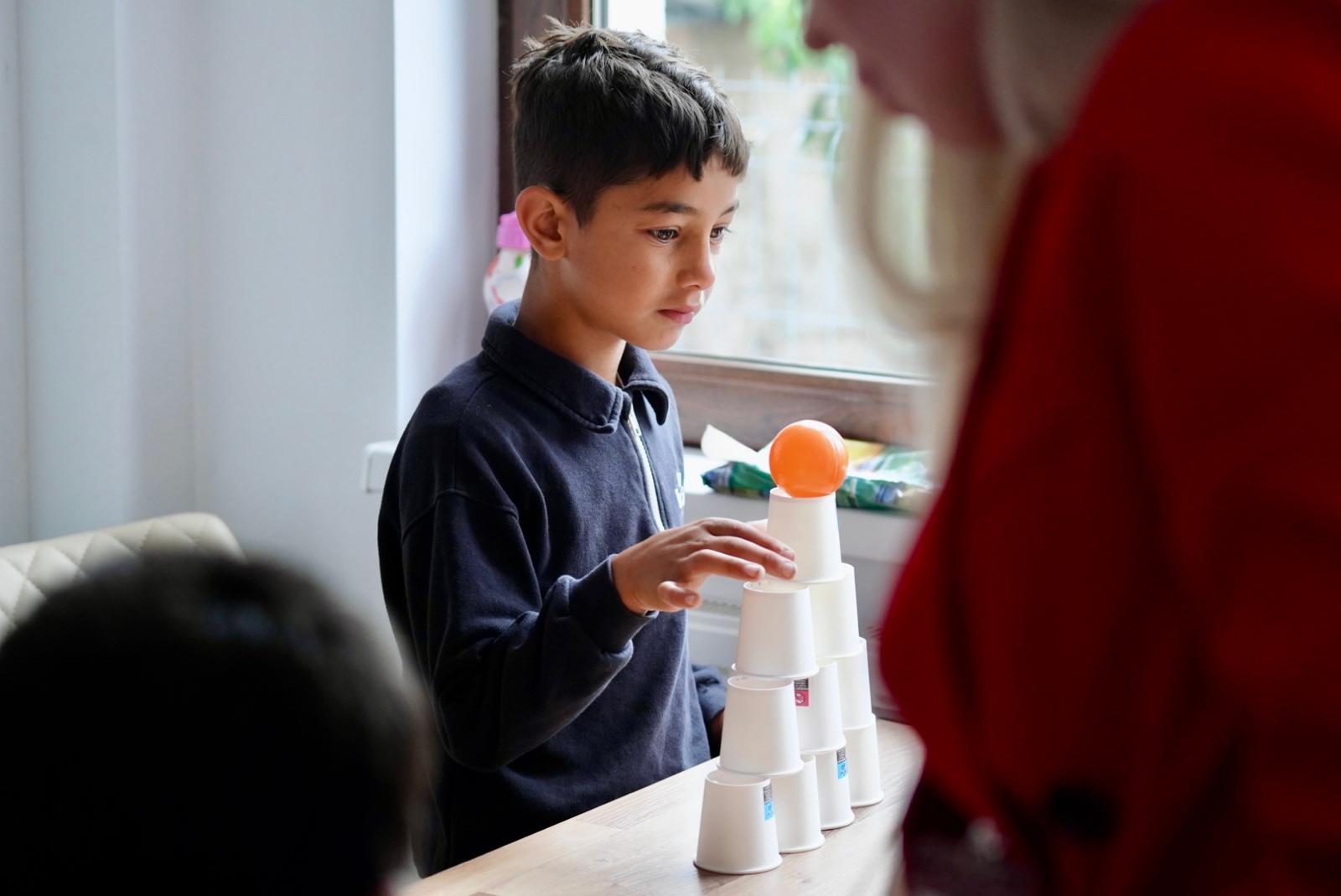
Snaking its way through the Livada neighbourhood in Călărași, the car splashes loudly as a tire dips into a pothole. This spring has been unseasonably cool in Romania, and rainwater lingers in the holes and cracks that pockmark the road.
From behind the clouds, the sun peeks out, casting gentle rays on the corrugated metal roofs of Livada’s aging brick houses. Outside, elderly residents set out plastic lawn chairs along the roadside, watching the visitors arrive at their small settlement, just a few hours’ drive from Bucharest.
Their children are away working – some in the capital, others abroad – and their grandchildren are at the Centre for Educational and Cultural Activities in Livada.
Representatives of the European Wergeland Centre and the Călărași local administration step out of the car and are warmly greeted by Talida Ceacarescu, social educational animator at the day centre.
They are eager to see how the centre has developed since its opening in January 2025. Inside, the walls are still bare and painted white, the rooms sparsely furnished. But one room is full of life: the children of Livada, gathered to welcome the guests.
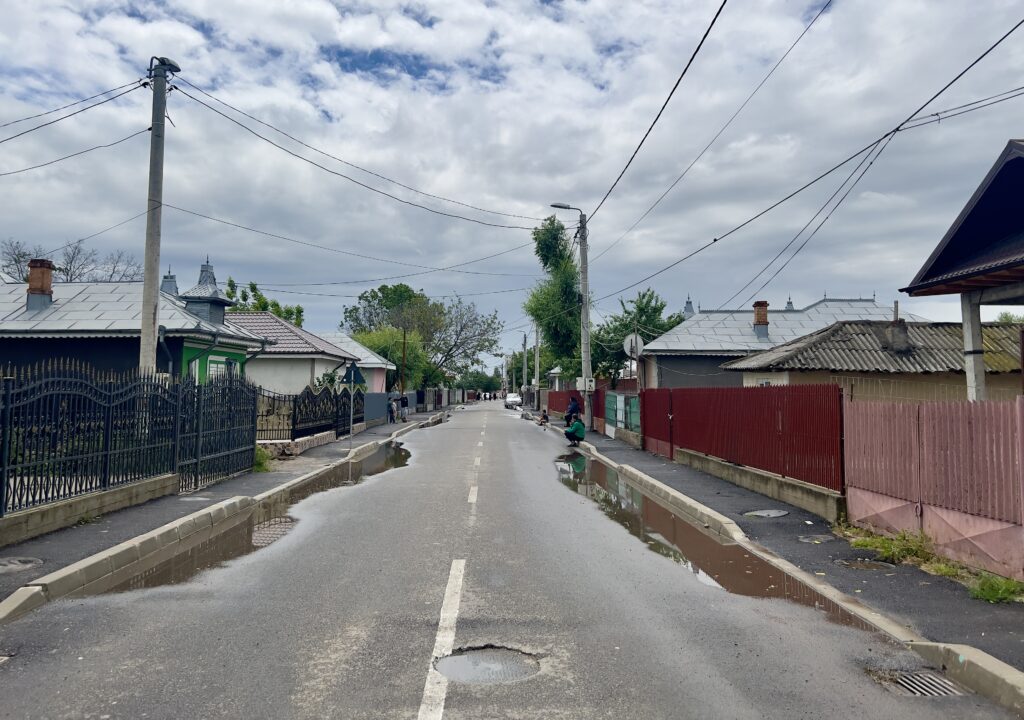
As Wergeland trainer Mihaela Zatreanu enters, she greets them in Romani. A squeal of excitement erupts. Someone is speaking their language!
“Are you one of ours? Are you one of ours?” the children shout, rushing to embrace her, each hoping that her attention will fall on them.
“I am,” Michaela smiles.
Democracy trainer Mihaela Zatreanu was among several experts contributing to the project, leading sessions on inclusion and helping participants better understand Roma history and culture. As a Roma herself, she embodies the Wergeland Centre principle: “Nothing about Roma without Roma.”
PHOTO: Călărași Municipality
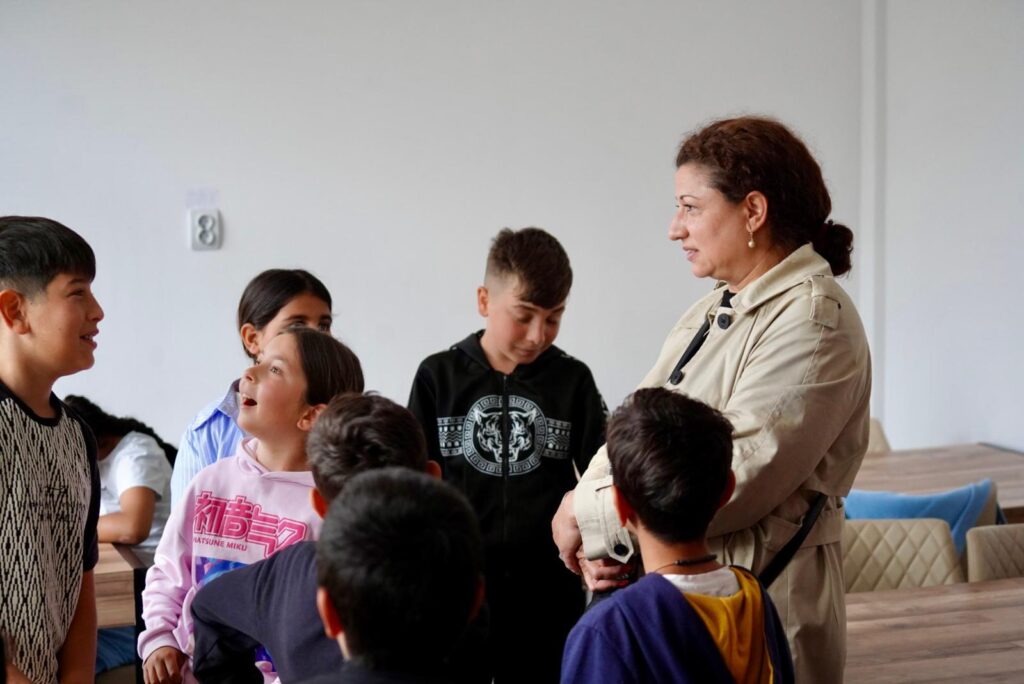
Building inclusion through education
One of the European Wergeland Centre’s main goals is to make inclusion a reality at every level of education, creating a more democratic Europe where all communities –especially those marginalised – can participate fully in society.
In 2024, the Wergeland Centre and its partner, the Romanian Social Development Fund, launched the pilot project “Promoting Inclusion and Quality Education in Romania.”
Read also: Mayors and Principals Come Together to Improve Their Schools
The bilateral project was a way of bringing together different stakeholders – mayors, school heads, teachers, and other local administrators – to strengthen inclusion and quality education in the rural and depressed regions of Călărași and Suceava.
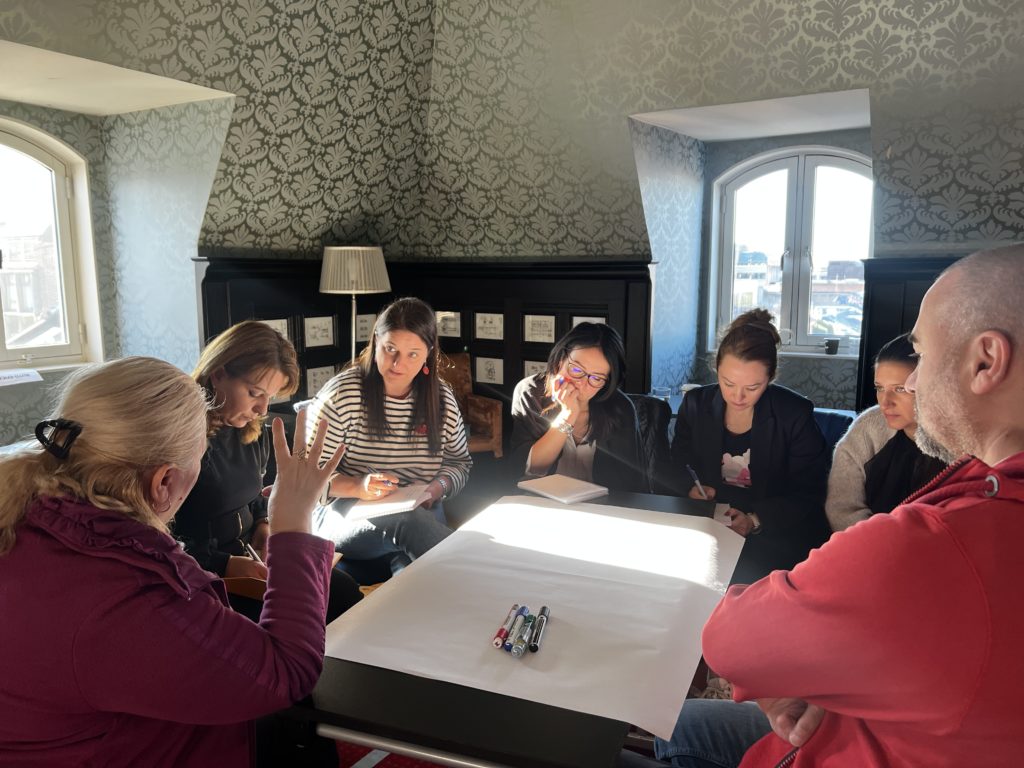
“They should not be afraid, but proud”
When Marius Dulce, the mayor of Călărași, travelled to Oslo to participate in the project, he knew that for many of his most vulnerable constituents, quality education is not simply about better schools. In Livada, most of the roughly 100 children are not enrolled in school at all. Poverty, discrimination, segregation, and deep mistrust between communities continue to block Roma children from their basic right to education. With many parents working abroad, the children are left in the care of elderly grandparents.
But Mayor Dulce also knew that a new municipal building would soon be completed in the heart of Livada’s Roma settlement. Envisioned as a community centre to promote inclusion and reduce segregation, it offered an opportunity.
Read also: “Suddenly They Want to Go to School”
Through the project – funded by the EEA and Norway Grants – the mayor and his colleagues visited the school with the largest percentage of Roma pupils in Norway. They also toured Romano Kher, a Roma cultural centre, and joined training sessions on Roma history and culture, and how communities together can build open, inclusive and safe learning environments.
The visit to Romano Kher left a lasting impression. Its elegant exhibitions of Roma history and interactive spaces for children gave the mayor a concrete vision for Livada’s centre: A place where children could learn essential skills for school, while also embracing pride in their heritage.
“I was very happy that I visited Romano Kher. After being there, I understood that the way to resonate with Roma is to understand their culture. And for them to understand their own culture and present it in a beautiful way so they don’t feel shame. They should not be afraid to recognise that they are Roma. On the contrary. They should be proud,” said the mayor.
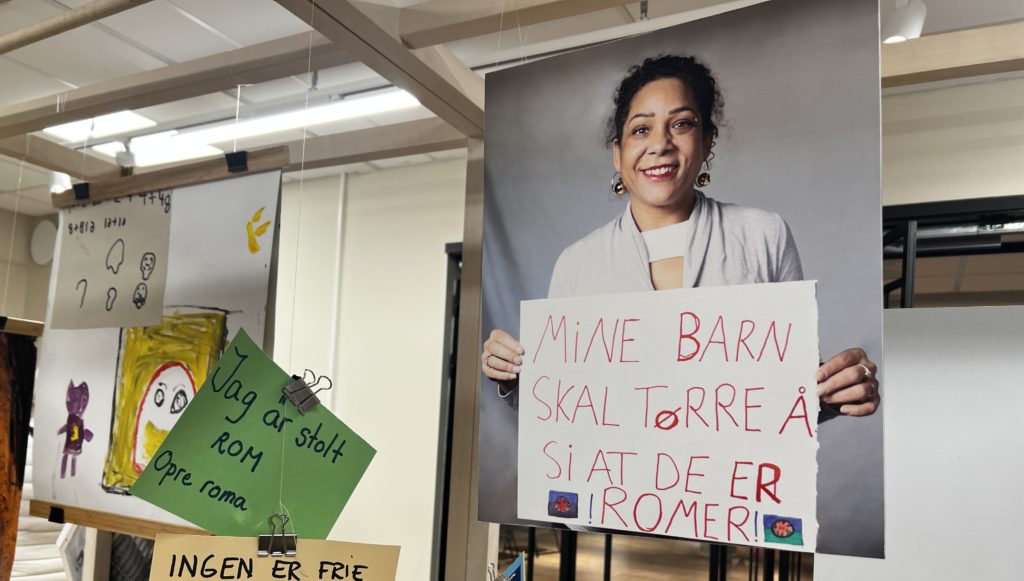
A new beginning for Livada’s children
Back in Livada, the children show off their drawings and their dance moves. The centre has both space for learning and playing, and on a wall, the visitors can enjoy handmade Roma flags in blue and green.
“The children here are between six and twelve years old, and there are between 10-15 at the same time,” explains municipal councillor Mihaela Dumitru. “We hope this centre will make it easier for them to enrol in school later on, and that they will become true ambassadors of their cultures.”
Mihaela explains that the children are provided with school counsellors and specialized psychologists to address adaptation challenges they may face, as well regular consultations with a community doctor.
PHOTO: Călărași Municipality
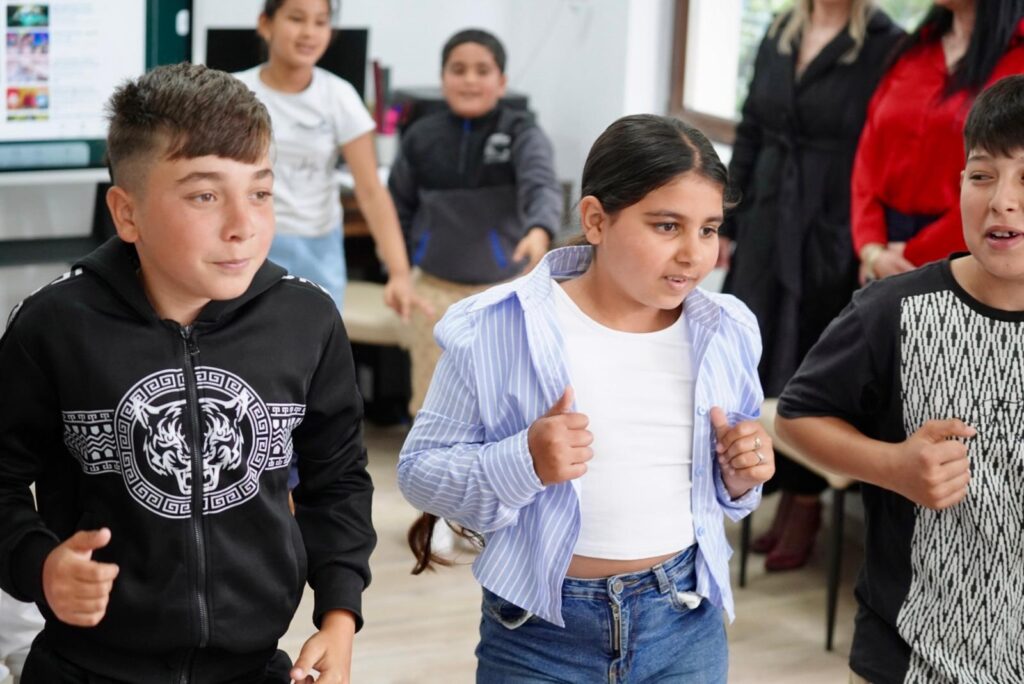
“They children are so eager,” Talida Ceacarescu adds with a laugh. “They wait at the gate for us to open.” Together with two colleagues, she helps the children learn to read and write, interact socially, and develop pride in their identity.
PHOTO: Călărași Municipality
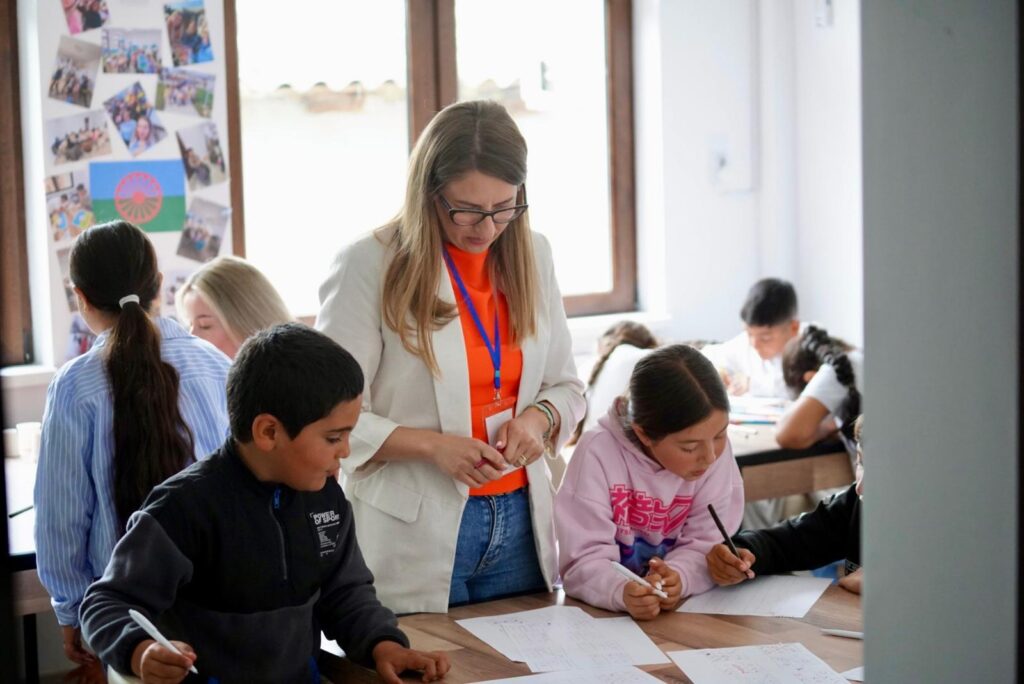
New Plans in Motion
Having only been operational for a few months, several of the rooms are still under-utilised, but plans are in motion.
“We hope to soon provide the children with a hot meal every day,” Talida says. Initially, some families were sceptical, but trust has grown, and the community now affectionately calls it ‘Our Kindergarten.’
Previously, Talida worked a volunteer social worker in the Livada settlement, making it easier for her to establish trust with members of the community.
“The best thing about working here is the bond between us adults and the children. It is a sentimental bond because these kids come from vulnerable and discriminated background, and are in need of so much. I have two little kids of my own, and I can offer love to them, as I am offering love to my own children. The kids here lack the presence and guidance of their parents, so it is a love they are very much in need of,” she says.
Read also: Bringing Roma History to the Classroom
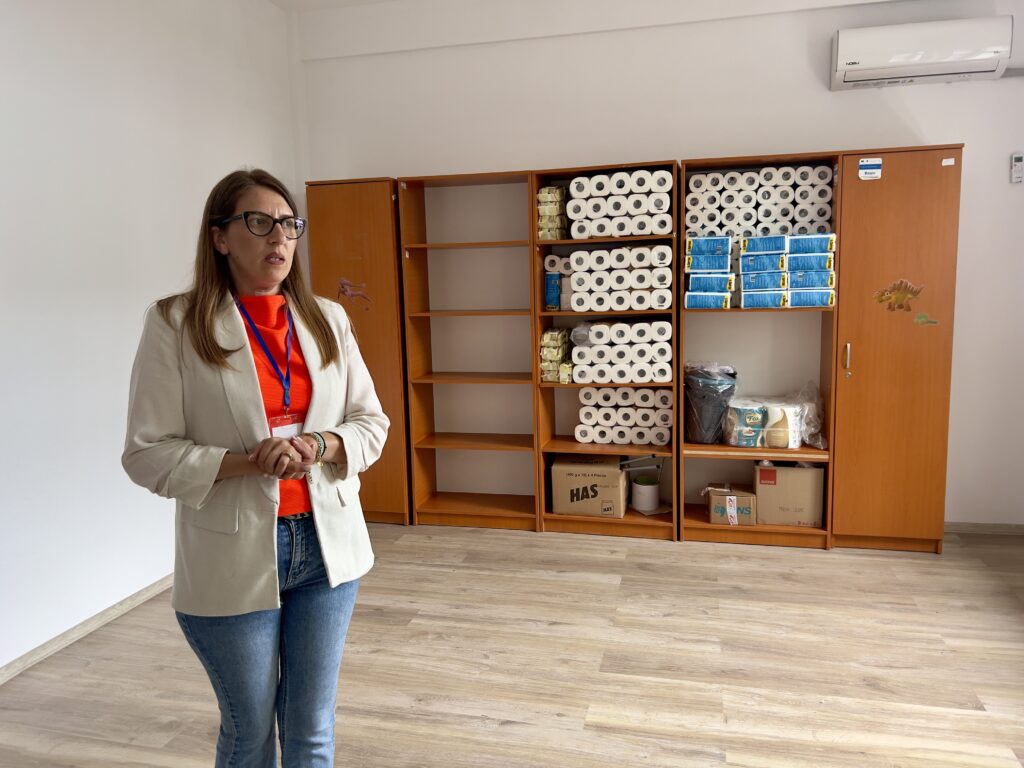
Still, challenges remain. Some grandparents hesitate to send children, fearing for their safety on the road. A minibus would allow safe transport and help increase attendance. Talida also hopes the children will continue visiting the centre once they start school, to receive meals and homework support.
PHOTO: Călărași Municipality
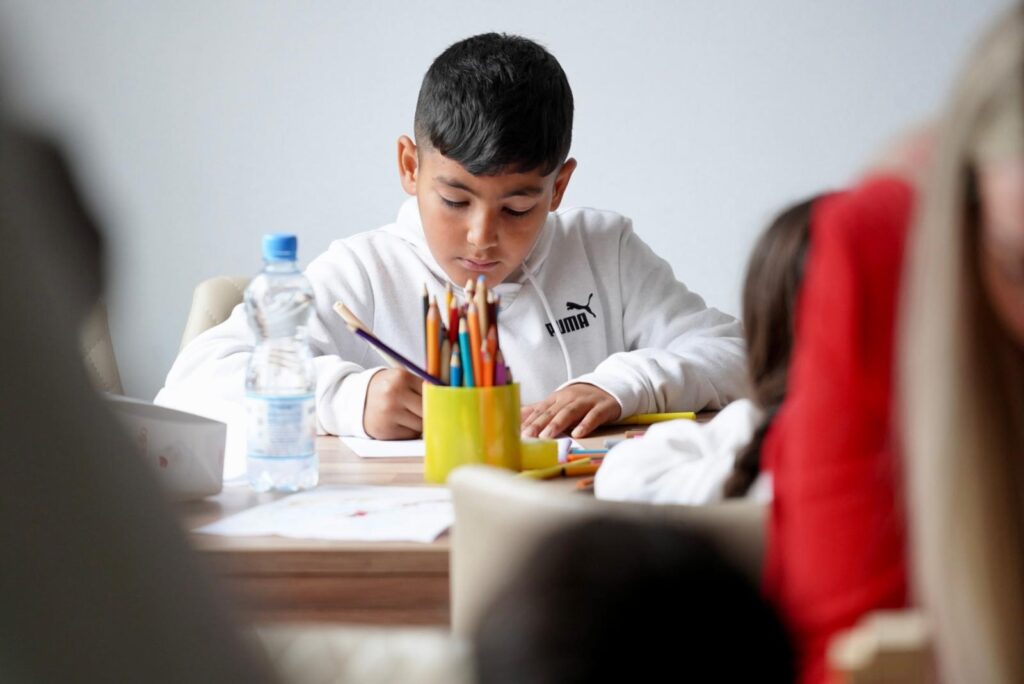
“Călărași has one of the highest dropout rates in Romania,” Talida explains. “We want to help children enrol, and motivate them to stay in school until they graduate. I would strongly recommend that other villages open centres like this. From my past experience as a volunteer with Roma communities, I can easily name five more villages that would benefit.”
Councillor Mihaela also hopes that the example of Livada will encourage other municipalities in Romania to establish similar centres:
“If communities can learn one thing from this story, it is that investments in people, in quality education, in emotional support, and in preventive health translate into trust, opportunities, and real transformation in the long term,” she says.
PHOTO: Municipal councillor Mihaela Dumitru discusses the plans to inprove and expand the Livada Day Centre in the future together with Larisa Leganger-Bronder, Senior Advisor at the European Wergeland Centre, and Wergeland trainer Mihaela Zatreanu.
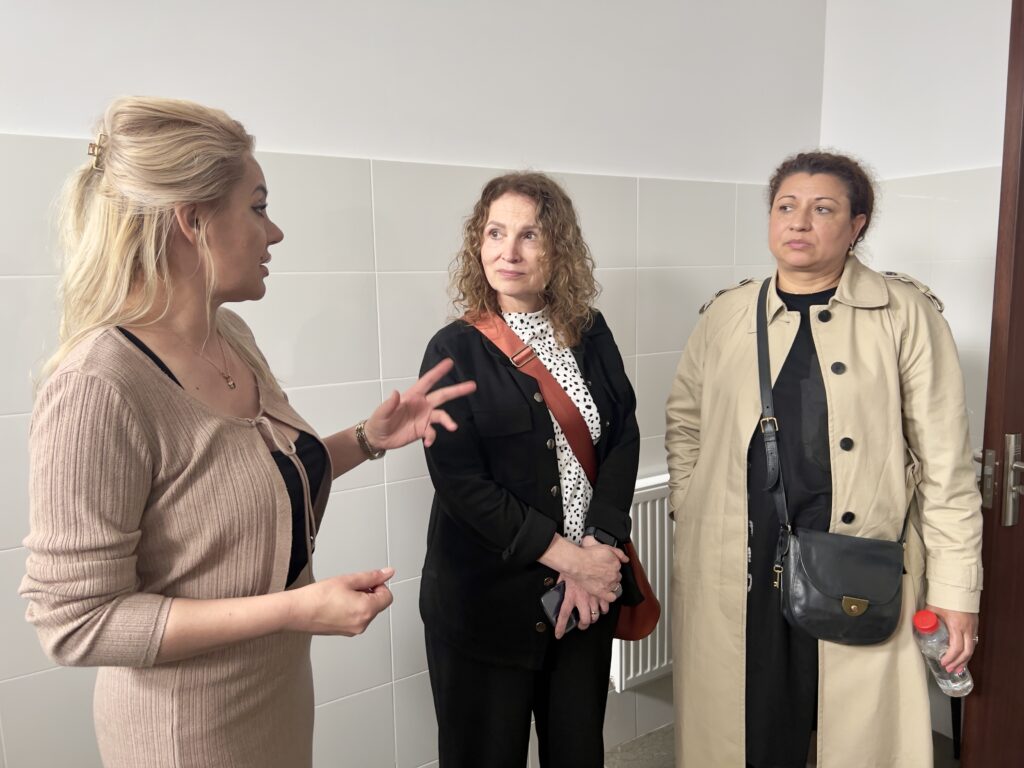
This article is part of our ongoing series: “Change Stories from Romania,” which tells the stories of participants in the “Promoting Inclusion and Quality Education in Romania” pilot project.
Read the rest of the stories in the series:
- “We Invited the Entire Village”
- Mayor and School Unite in Rural Romania
- Bringing Roma History to the Classroom
The pilot project Promoting Inclusion and Quality Education in Romania ran from 2024 to 2025 and included 30 schools in Calarasi and Suceava. Implemented under the Local Development, Poverty Reduction, and Enhanced Roma Inclusion programme and funded by the EEA Norway Financial Mechanism 2014-2021.